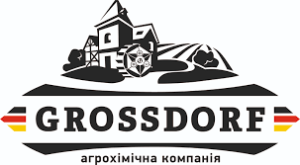
Agrochemical company Grossdorf LLC, specializing in the production of granular and liquid mineral fertilizers, has decided to expand its product range by developing a line of products for retail sales, industry analyst publication Infoindustria reported.
“Entering the retail market opens up new opportunities for growth and expansion of the consumer audience. The company believes in the quality of its products and is ready to meet the needs of retail customers with the same dedication it shows in the agrochemical sector market,” said Andrei Khalyavka, director of the agrochemical company.
According to him, Grossdorf produced about 20,000 tons of various NPK fertilizer formulas in 2023. In addition, the company became Ukraine’s second supplier of UAN in 2023 and produced more than 106 thousand tons of this fertilizer. In addition, Grossdorf produces granulated potassium chloride, NPK fertilizers and granulated (compacted) ammonium sulfate.
“In just one year, the manufacturer supplied more than 150 thousand tons of fertilizers to the market, becoming the second fertilizer producer in Ukraine,” Infoindustria summarized.
Grossdorf LLC was established in 2001. The company is a producer of mineral fertilizers, one of the leaders in UAN production in Ukraine, importer, supplier and end user of mineral fertilizers. It has its own plant in Odessa region for production of liquid fertilizers (RKD, UAN, UAN), storage for liquid fertilizers with the volume of more than 10 thousand tons, capacities for production of loose granular fertilizers, extensive network of agrochemical warehouses practically in all regions of Ukraine.
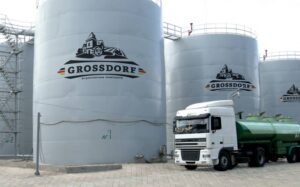
Grossdorf, an agrochemical company specializing in the production of granular and liquid mineral fertilizers, has decided to expand its product range by developing a line of products for retail, according to the industry analytical publication Infoindustriya.
“Entering the retail market opens up new opportunities for growth and expansion of the consumer audience. The company believes in the quality of its products and is ready to meet the needs of retail customers with the same dedication it shows in the agrochemical sector,” said Andriy Khalyavka, CEO of the agrochemical company.
According to him, in 2023, Grossdorf produced about 20 thousand tons of different formulas of NPK fertilizers. In addition, the company became the second largest supplier of UAN in Ukraine in 2023 and produced more than 106 thsd tonnes of this fertilizer. In addition, Grossdorf produces granular potassium chloride, NPK fertilizers and granular (compacted) ammonium sulfate.
“In total, the manufacturer supplied more than 150 thousand tons of fertilizers to the market last year, becoming the second largest fertilizer producer in Ukraine,” InfoIndustry summarized.
Grossdorf LLC was established in 2001. The company is a mineral fertilizer producer, one of the leaders in the production of UAN in Ukraine, an importer, supplier and end consumer of mineral fertilizers. The company has its own plant in Odesa region for the production of liquid fertilizers (UAN, UAN, UAN), a storage facility for liquid fertilizers with a capacity of over 10 thousand tons, facilities for the production of bulk granular fertilizers, and an extensive network of agrochemical warehouses in almost all regions of Ukraine.
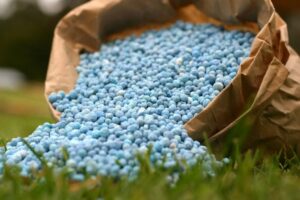
In 2023, the plants of Ostchem, a nitrogen holding company that unites Group DF’s nitrogen business, produced 2.1 million tons of mineral fertilizers, up 19.51% year-on-year.
According to a Group DF press release, Azot, the group’s Cherkasy-based plant, produced 1.56 million tons of mineral fertilizers in 2023, up 39.63% year-on-year, while Rivne Azot produced 528 thousand tons (-10.81%).
Urea, UAN and ammonium nitrate were the key fertilizers produced by Ostchem’s businesses, Group DF said.
According to the group, in 2023, it produced 835.9 thousand tons of ammonium nitrate, up 60.47% year-on-year, UAN – 572.7 thousand tons (+130%), and urea – 447.1 thousand tons (+145%). Production of UAN, a traditionally exported fertilizer produced by Rivne Azot, halved to 102 thousand tons.
“The fertilizer market is recovering, but imports of nitrogen fertilizers, which have increased significantly, do not allow us to fully utilize our plants. Despite the difficult situation in the agricultural sector, forced shutdowns of plants due to the hostilities, still high gas prices and abnormally high volumes of imports to Ukraine at dumping prices, Ostchem started to restore production in 2023. We fully met the demand from farmers even during peak periods,” said Sergiy Pavliuchuk, Production Director of Ostchem’s nitrogen business.
In 2023, Ostchem Holding doubled its production of UAN, the most promising fertilizer in Ukraine, to meet the demand. UAN was ranked second in terms of production, and its share in Ostchem’s product portfolio amounted to 27.3%, according to Group DF.
“It is no secret that we are negotiating with global players to develop several industrial sites. Our strategic plans include the construction of new workshops and enterprises. We are talking about investing in new, energy-efficient fertilizer production facilities and launching new products such as AdBlue, industrial gases, and petrochemicals,” added Pavliuchuk.
Commenting on the state of the domestic fertilizer market in Ukraine, Group DF said that the main feature of 2023 was the critical growth in imports imported at dumping prices. Compared to 2022, imports of mineral fertilizers to Ukraine increased 1.9 times, reaching 1.99 million tons. For example, urea imports increased 3.7 times over the year, reaching 501 thousand tons.
“A huge flow of cheap Belarusian and Russian fertilizers enters Ukraine through two channels: the first is from the former Soviet Union countries friendly to the aggressor. The second new channel is the re-export of Belarusian and Russian fertilizers from the EU. According to Eurostat, the total volume of nitrogen fertilizer imports to the EU increased by 34% in 2022-2023, while Russia accounted for about a third of these imports. Despite the sanctions and the existing embargo, a significant portion of these fertilizers is also entering Ukraine, slowly “killing” the Ukrainian producer and Ukrainian jobs,” emphasized Oleg Arestarkhov, Group DF’s Head of Corporate Communications.
In his opinion, the new trend is driven not only by Russia’s desire to expand its sales markets, but also by its strategic plan to make the EU and Ukraine dependent on its fertilizers.
Unable to compete with cheap imports, many EU companies are shutting down, and Ukrainian chemical companies such as Odesa Port and Sumykhimprom are also idle.
“The US and EU countries have already developed measures to ‘reduce dependence’ on fertilizers, grain and other food products from Russia. Formally, Ukraine has an embargo on imports of Russian and Belarusian fertilizers. However, fertilizers from these countries, as well as countries that buy cheap gas from Russia, continue to be supplied. As a result, our market is flooded with cheap imports, and Ukraine is facing critical dumping. Unfortunately, in 2023, we did not see any clear, tough economic actions by the authorities to protect the Ukrainian market and national producers. Fertilizer imports to the country are growing much faster than domestic production. Domestic production grew by about 20%, while imports grew by almost 100%,” stated Arestarkhov, adding that Ukraine needs to learn to better protect its interests.
Group DF consolidates Dmitry Firtash’s assets in the gas distribution, chemical, titanium and port industries, as well as in agriculture and media.
Ostchem is Group DF’s nitrogen holding company that unites the largest mineral fertilizer producers in Ukraine. It includes Rivne Azot, Cherkasy Azot, as well as Sievierodonetsk Azot and Stirol, which are not operating and are located in the occupied territories.
Cherkasy Azot PrJSC (Cherkasy, Ukraine) is one of the largest Ukrainian chemical companies and has been part of Group DF’s nitrogen business since 2011. The design production capacity of Cherkassy Azot is 962.7 thousand tons of ammonia, 970 thousand tons of ammonium nitrate, 891.6 thousand tons of urea, and 1 million tons of UAN per year.
Rivne Azot is one of the largest Ukrainian chemical companies in Western Ukraine and has been a part of Group DF’s Ostchem nitrogen holding since 2011. Since its acquisition, Firtash has invested over UAH 1.3 billion in Rivne Azot.
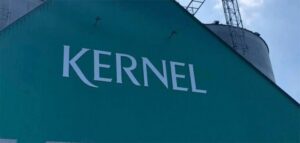
The Kernel agro-industrial group plans to supply Ukraine with oil products, fertilizers and other inventory items in order to overcome the shortage of resources for agricultural production in Ukraine, Ihor Stelmaschuk, head of the Kernel commercial department, said at the Fuel for Ukraine international conference.
“Together with partners, we will be able to establish long-term systematic work in the processes of production and supply of fertilizers. And in the future we will build a powerful diversified mechanism for providing Ukraine with oil products, we will meet the fuel needs of agricultural enterprises in a planned and cyclical way,” Stelmaschuk said on the Facebook page of the agrarian group.
According to him, now Kernel is exchanging experience and ideas with key players in the global oil products market.
“We decided on the urgent problems of a resource, logistics and infrastructure nature. We assessed the risks and trends in the fuel market. The country’s future annual demand for diesel fuel is estimated at 4 million tonnes, so Ukrainian consumers need to establish cooperation with Europe right now,” Stelmaschuk stressed.
According to him, due to the full-scale Russian invasion, Ukraine is forced to replace 100% of the pre-war sources of supplies of oil products, which is what Kernel plans to do.
In addition, the agricultural holding is working on projects to provide the agricultural sector with mineral fertilizers, their logistics and transshipment in ports. Kernel stated that it has already signed the first contracts for the supply of fertilizers for the sowing of winter wheat and rapeseed in the autumn, which is especially important given the likely global shortage of fertilizers in autumn 2022 and spring 2023.
Before the war, Kernel ranked first in the world in production of sunflower oil (about 7% of world production) and its export (about 12%), and was also the largest producer and seller of bottled sunflower oil in Ukraine. In addition, the holding was engaged in the cultivation and trade of other agricultural products.
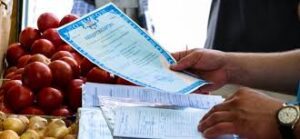
President of Ukraine Volodymyr Zelensky signed law No. 2246-IX (previously bill No. 7264 on uninterrupted production and supply of agricultural products during martial law), adopted by the Verkhovna Rada as a whole on May 12.
The relevant information was published on the parliamentary website on Wednesday.
As reported, the Verkhovna Rada simplified the export, import and transit of agricultural products to Ukraine during martial law, which will expand farmers’ access to fertilizers and genetic material of farm animals, as well as support the Ukrainian organic industry.
“The task of the state is to simplify farming under martial law as much as possible and reduce the bureaucratic burden on business and government bodies. This applies, in particular, to the state registration of pesticides and agrochemicals, which is extremely important during the spring sowing campaign in 2022. Also it is important to support niche sectors of agriculture and organic production,” the explanatory note to the document states.
Law No. 2246-IX abolishes until the end of martial law and for 90 days after its cancellation the state registration of agrochemicals imported into Ukraine, including some types of nitrogen fertilizers, ammonium nitrates, ammonia in aqueous solution, thiosulfates, potassium, calcium and aluminum phosphates, borates, chelate zinc and a number of other mineral fertilizers.
In addition to the simplified import of such types of fertilizers, the bill cancels the state registration procedure for their production, sale, use and advertising.
The law also allows producers of organic products to use the label “organic”, “biodynamic”, “biological”, “ecological”, “organic” until July 1, 2024, even if they are not operators of organic products in accordance with law 2496-VIII on turnover organic products.
This initiative allows Ukrainian producers of organic products that were producing according to EU standards, but did not meet the status of an operator of organic products according to Ukrainian standards, to switch to Ukrainian production standards without an additional transition period. It also allows them to qualify for government support.
The document expands the list of entities that can take samples and conduct phytosanitary examination, in particular, introduces until the end of martial law and by 90 after its cancellation a simplified procedure for involving employees of private laboratories in the examination, and also authorizes agronomists-inspectors to conduct such inspections to conduct an audit on certification.
In addition, Law No. 2246-IX allows the import to Ukraine of cargoes with live animals in transit through countries where there are cases of disease from the list of the International Epizootic Bureau (OIE). This will allow the Ukrainian livestock industry to access modern breeding genetic material from the EU countries and expand the diversity of breeding material of agricultural animals in Ukraine.
ANIMALS, FERTILIZERS, IMPORT, LAW, PHYTOSANITARY CERTIFICATES
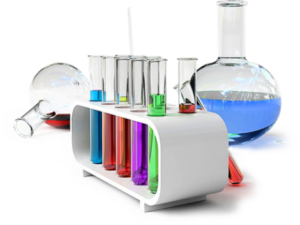
During the period of martial law, the Verkhovna Rada has simplified the export, import and transit of agricultural products to Ukraine, which will expand the access of farmers to fertilizers and genetic material of farm animals, as well as support the Ukrainian organic industry.
Relevant bill No. 7264 on uninterrupted production and supply of agricultural products during martial law was adopted as a whole at a meeting on May 12 by the votes of 313 MPs, with the required 226 votes, MP Yaroslav Zhelezniak (the Holos faction) said on his Telegram channel on Thursday.
“The task of the state is to simplify farming under martial law as much as possible and reduce the bureaucratic burden on business and government bodies. This applies, in particular, to the state registration of pesticides and agrochemicals, which is extremely important during the spring sowing campaign in 2022. Also it is important to support niche agriculture and organic production,” according to an explanatory note to the bill.
The bill abolishes state registration of agrochemicals imported into Ukraine, including some types of nitrogen fertilizers, ammonium nitrates, ammonia in aqueous solution, thiosulfates, potassium, calcium and aluminum phosphates, borates, zinc chelate and a number of others mineral fertilizers until the end of martial law and for 90 days after its cancellation.
In addition to the simplified import of such types of fertilizers, the bill cancels the state registration procedure for their production, sale, use and advertising.
Bill No. 7264 also proposes, until July 1, 2024, to allow organic producers to use the label “organic,” “biodynamic,” “biological,” “ecological,” “organic,” even if they are not operators of organic products in accordance with law No. 2496-VIII on the turnover of organic products.
According to the explanatory note to the document, this initiative allows Ukrainian producers of organic products that produced according to EU standards, but did not meet the status of an operator of organic products according to Ukrainian standards, to switch to Ukrainian production standards without an additional transition period. It also allows them to qualify for government support.
The bill expands the list of entities that can take samples and conduct phytosanitary examination, in particular, introduces a simplified procedure for involving private laboratory employees in examination until the end of martial law and 90 years after it is canceled, and also authorizes agronomists-inspectors to conduct such inspections to conduct an audit on certification.
In addition, the bill allows the import of cargoes of live animals in transit through countries where there are cases of disease from the list of the World Organisation for Animal Health to Ukraine. According to the authors of the bill, this will allow the Ukrainian livestock industry to gain access to modern breeding genetic material from the EU countries and expand the diversity of breeding material of agricultural animals in Ukraine.
During the discussion of the document at the second reading, the MPs supported the amendment of MP Oleh Kulinich (the deputy group Dovira), specifying that state registration of pesticides is not required in cases where the active ingredient of the pesticide is marked in the EU Pesticides Database as permitted for use.
ANIMALS, FERTILIZERS, IMPORT, PHYTOSANITARY CERTIFICATES, RADA